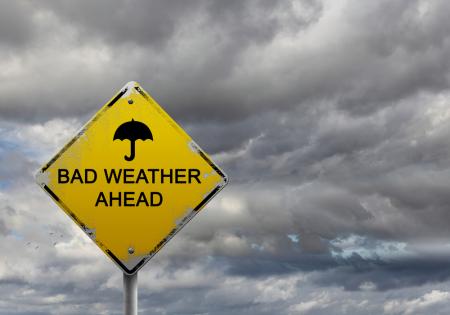
When Winters Attack
The most obvious way to circumvent such confusion is by implementing a detailed policy. Everyone will know the rules before bad weather strikes. Keep in mind, those parts of the country that enjoy moderate weather are often the most ill-equipped to deal with a sudden ice storm, snowstorm, or flood. Business offices in these areas should draft a policy as soon as possible.
Yolanda Jones is an operations manager who handles offices in Chicago, Dallas, and Austin—each city typifying levels of weather that range from mild to occasionally treacherous. “The ‘freedom of responsibility’ attitude at my company helps to shape procedure for inclement weather situations. We ask employees to make decisions individually," she says. "We don't demand that people come in [during bad weather] or do anything else. We leave it up to the employee's own judgment, so they really don't feel like it's a burden. The most important aspect is employee safety."
Workers at the Chicago office are more used to office-wide—not to mention citywide—shutdowns, so this laid-back approach works especially well. In Austin, the story is slightly different.
No Snow? No Excuse
Where snowstorms are as rare as, well, a cold day in hell, written policy helps individuals steer clear of bad decisions during a weather emergency. A recent flash flood drove this point home. Jones explains: "Living in a place where the weather isn't really very bad doesn't force us to have a policy in writing, but we were terribly affected by the flood. We decided afterward that our security committee, a group within our [Human Resources] department, would get together to establish an emergency plan. The bottom line is that we leave these decisions up to the discretion of our people while emphasizing how safe we want everyone to be."
This brings up the liability issue. Who, ultimately, is responsible for an accident that occurs when someone attempts to make it in on a bad weather day? Ideally, office closures are widely reported by local television and radio stations or by an outgoing telephone message from the office. It is further recommended that employees attempt to contact the office and speak to a supervisor to clarify office closures. What if transportation to work presents no obvious danger, the office has not been officially closed, and a deadline looms? An employee determined to come in would be wise to communicate with the company first, or at least leave a message. In the end, though, determining liability must proceed on a case-by-case basis. Because there are so many variables—modes of transportation, distances traveled, etc.—it is nearly impossible to draft a blanket policy that settles all liability issues.
Whether your office enforces a declarative policy or not, dangerous weather conditions must be approached with common sense and serious consideration. After all, critical decision-making skills need not be reserved only for those hours spent behind your desk.
